Not only has Rafiki director Wanuri Kahiu crafted a tender, gorgeously rendered coming-of-age story about two young Kenyan women who fall for each other, but she's also composed a love letter to her country even if the film classification board there banned the film. In its journey to the screen in Kenya, the film has forever changed the landscape for LGBTQ cinema there and beyond, as it has mesmerized audiences at film festivals around the world.
A modern-day Romeo and Juliet (but with a far less tragic ending), Rafiki tells the tale of Kena (Samantha Mugatsia) and Ziki (Sheila Munyiva), young women who fall headlong for each other despite their fathers being rival politicians. Their love story eventually unfolds over conversation, sodas, dance clubs, and soccer games.
A movie depicting lesbian love in Kenya is in itself groundbreaking, but the events that ensued once the film was made, including being banned for homosexual content by Kenya's Film Classification Board and the lawsuit that allowed it to eventually screen there, were just as impactful. But first and foremost, Kahiu set out to illustrate that love is the same in Kenya as it is across the globe.
"It was important for me to show that [Kenyans] fall in love just like anybody else in the rest of world because there's not that many images of tenderness and kindness when it comes from the African continent," Kahiu tells The Advocate about her film, which is inspired by Monica Arac de Nyeko's 2007 story "Jambula Tree."
"To show tender, loving characters was incredibly important," she adds. "We have the same sort of anxiety when it comes to first love, and it's important for us to represent that so that we can have an equal sense of humanity."
Originally banned by the homophobic head of Kenya's Film Classification Board, Ezekiel Mutua, because he alleged it would "promote lesbianism," the film enjoyed massive audiences when the ban was lifted for a brief time in order to make it eligible for the foreign-language Academy Award.
"The @InfoKfcb has banned the film "RAFIKI" due to its homosexual theme and clear intent to promote lesbianism in Kenya contrary to the law and dominant values of the Kenyans," the Film Classification Board tweeted at the time it banned Rafiki.
Wanuri Kahiu
The temporary lift of the ban came only because of Kahiu's fierce determination in the face of discrimination. She took the Film Classification Board to court and won a seven-day reprieve. The board chose to submit a different film to the Academy Awards, but Rafiki, with its sold-out showings, won in its own way.
Kahiu doesn't tend to screen her own work, she says, although she did watch Rafiki with an audience when it became the first Kenyan film to be shown at Cannes. Still, after she fought the Film Classification Board to lift the ban, she missed the screenings in Kenya. That didn't stop LGBTQ Kenyans from sharing their stories with Kahiu and thanking her for her courage in making the film.
"We're allowing for conversations to start, we're allowing for people to be honest about their lives," Kahiu says of the power in screening her film in her home country.
"There've been some really beautiful responses from the LGBT community in Kenya. There's one particular post. It's very long, but just made me weep -- truly," Kahiu says. "[The writer] so clearly articulated what I wanted the film to do and how she felt seeing [it]. ... She didn't feel isolated."
The film, with its vibrant hues and soundtrack, is indicative of Afrobubblegum, an artistic movement Kahiu cofounded that aims to depict "a fun, fierce, and fantastical representation" of Africa. During moments of intimacy between Kena and Ziki, the film's audio track is purposefully set out of sync with the video track, capturing the otherworldly, dreamlike quality of falling in love. While there is violence in Rafiki and the threat of danger looms heavily for parts of the film, the story ultimately eschews the painful tropes of so many lesbian-themed films and offers an uplifting ending. Which is precisely why the Film Classification Board banned Rafiki, Wanuri believes.
"It was [the notion] that people can live like that [as out] and be accepted in their own communities and find space to be free in their own communities and can truly be themselves within Kenya," Wanuri says of why the board bristled at her film.
Rafiki, with its youthful energy and cosmopolitan sensibility, is bound to alter antiquated perceptions in the West about countries like Kenya. Beyond telling an honest love story, depicting her country in all of its fullness is precisely what Kahiu set out to do.
"Whenever I create from the part of the world that I live in, I want it to be a reflection of the world that I live in -- a world where we chew gum, order Chinese and pizzas. We're on the internet," Kahiu says. "One of the things that keeps coming up and it is this idea of readiness --that Kenya's not ready or Africa's not ready for stories like this [Rafiki]."
"There's no bell that rings when you're ready. It's just a movement towards life that we're constantly pursuing and a movement towards love, and if love is the most basic human right, then we should always and constantly be moving towards love," she says.
Rafiki is in theaters now. Watch an exclusive clip below.
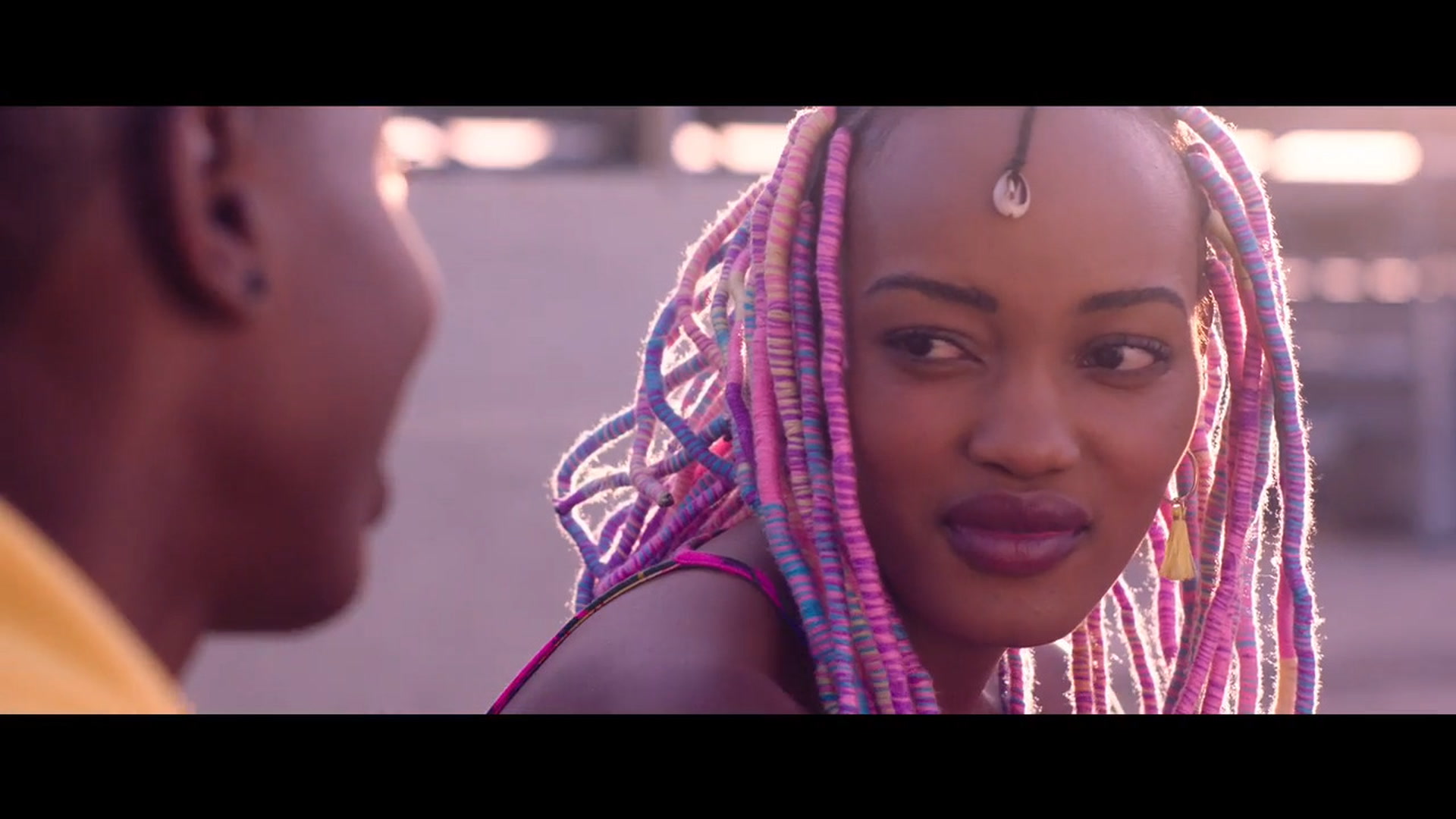
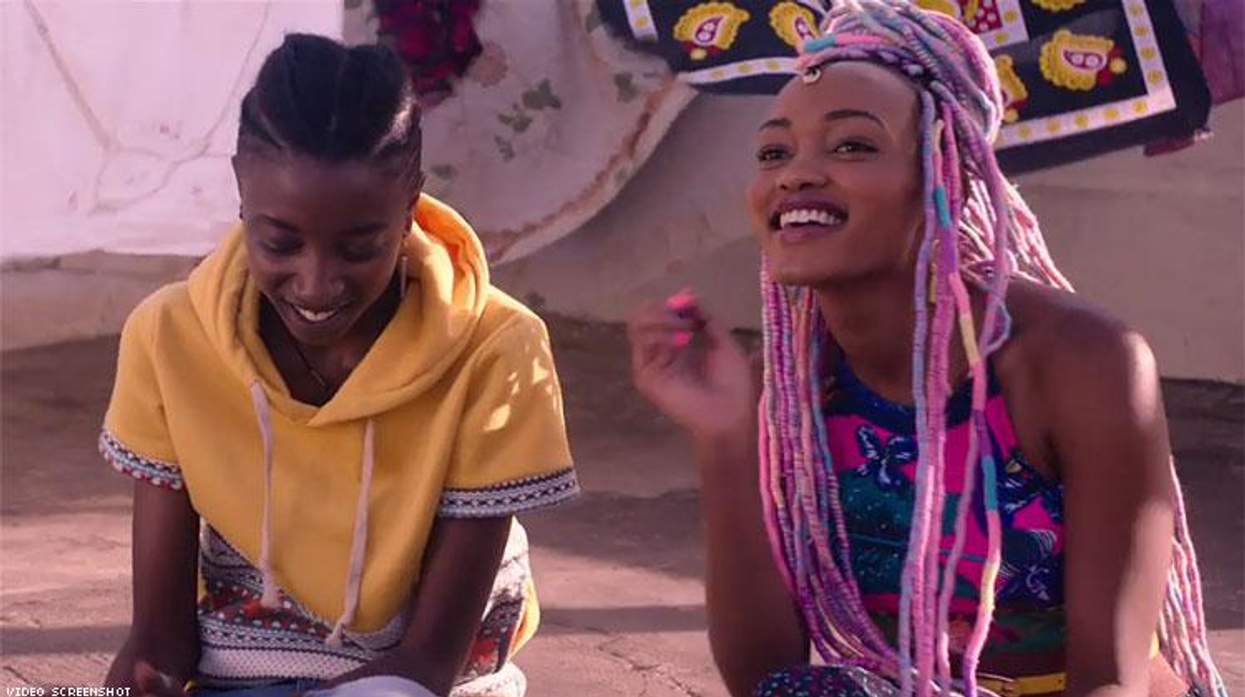

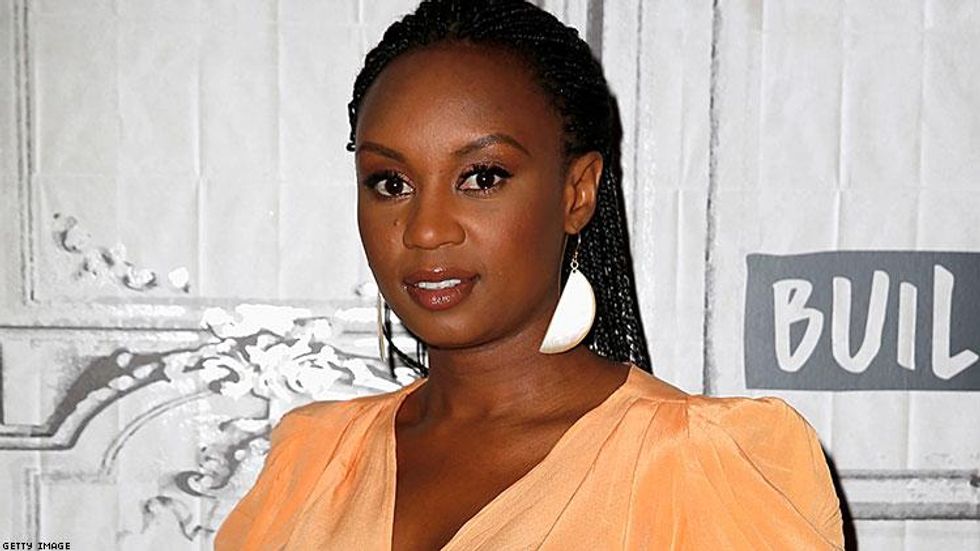
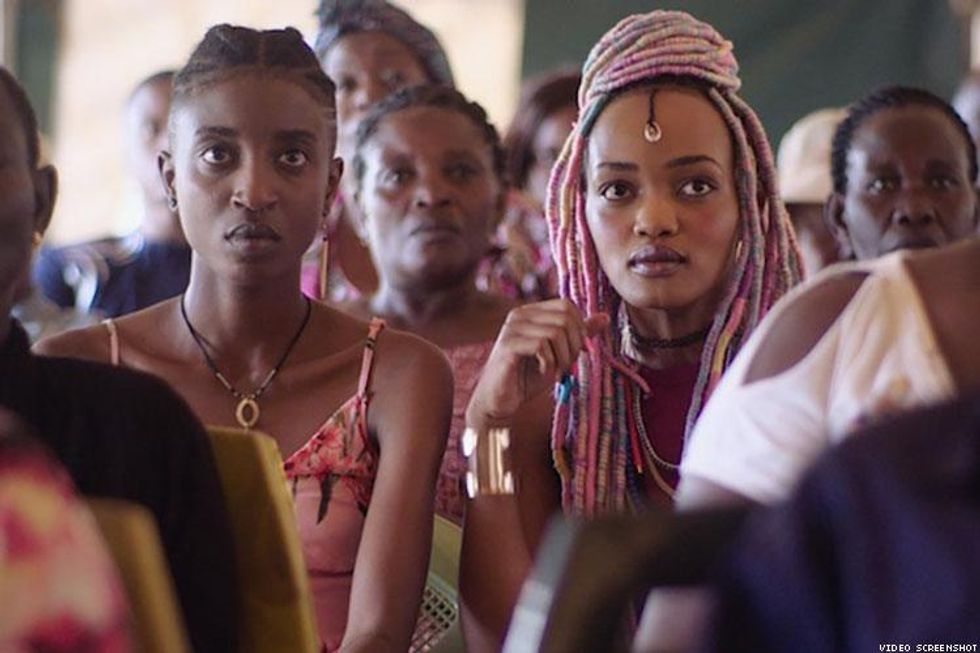





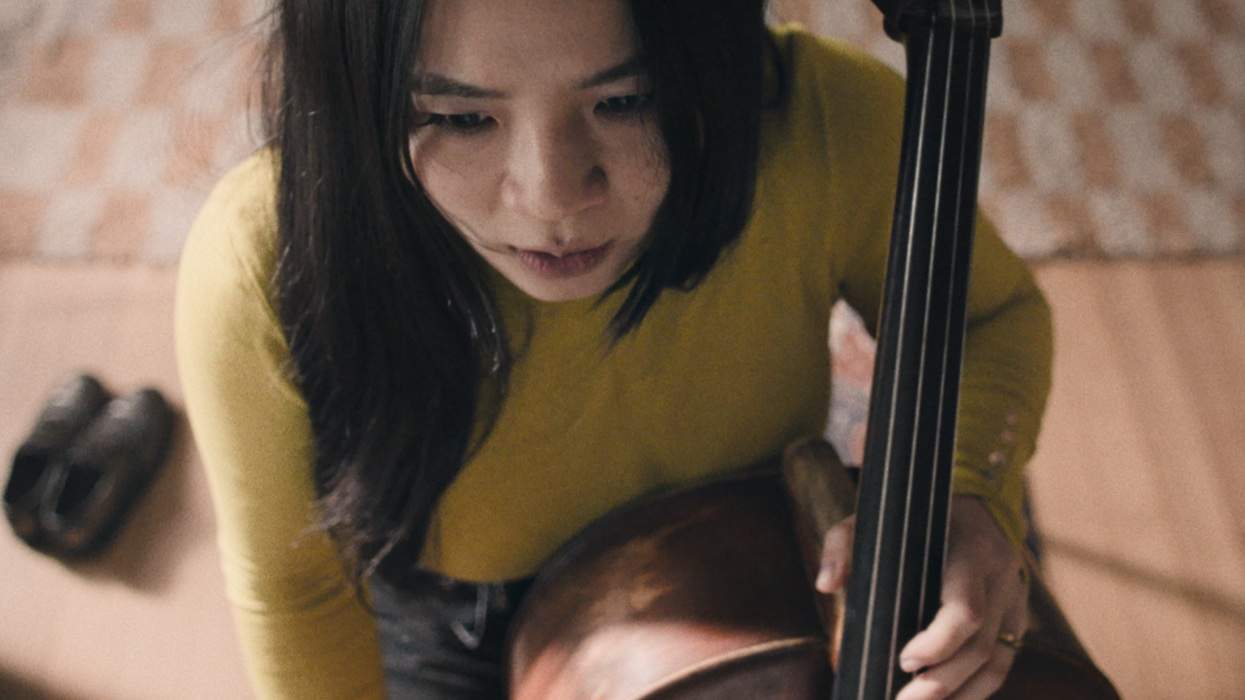

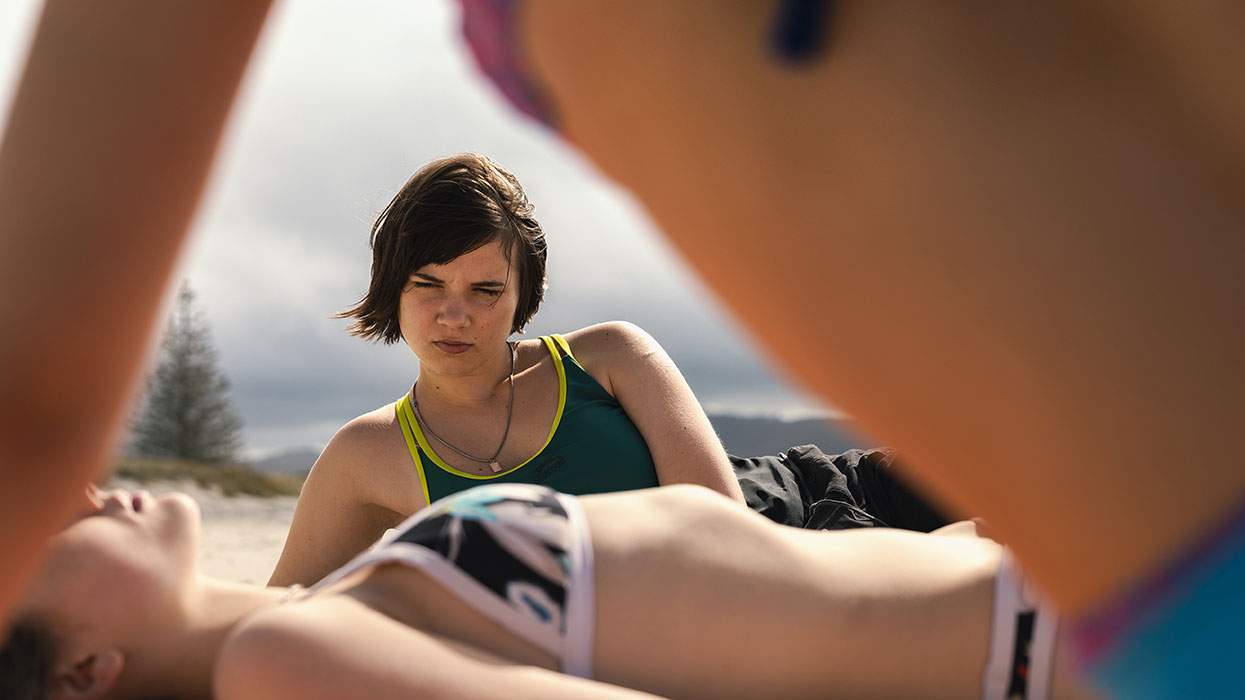
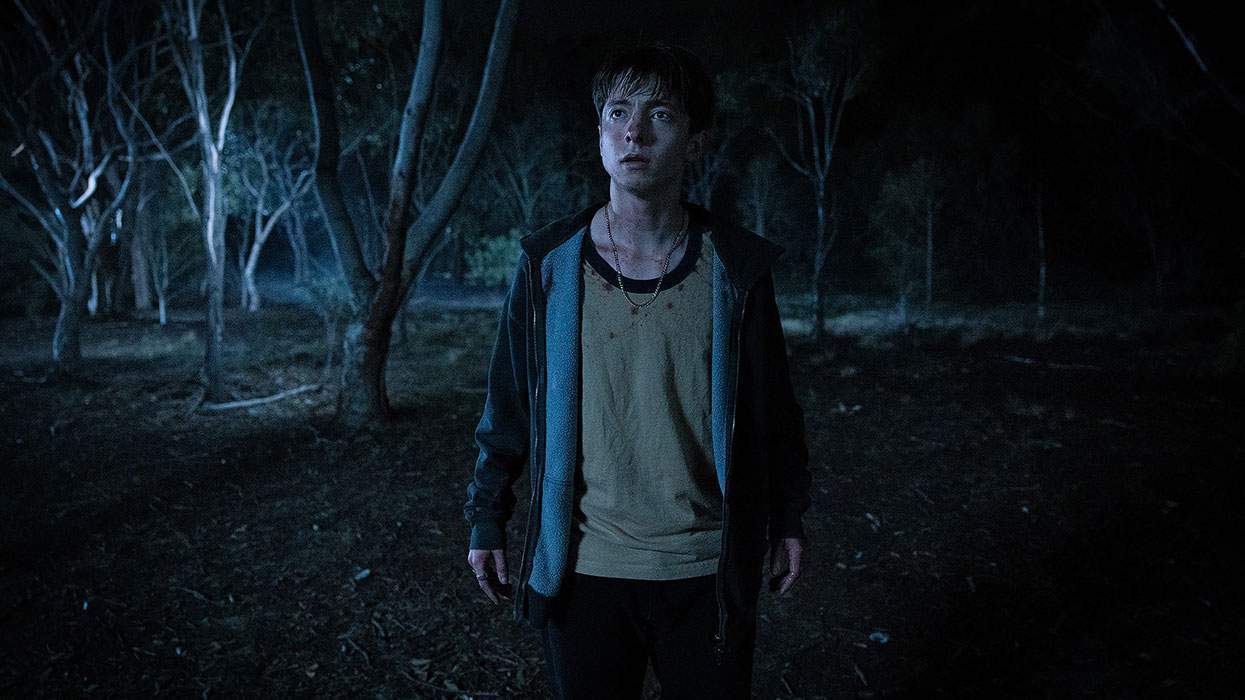





Charlie Kirk DID say stoning gay people was the 'perfect law' — and these other heinous quotes
These are some of his worst comments about LGBTQ+ people made by Charlie Kirk.